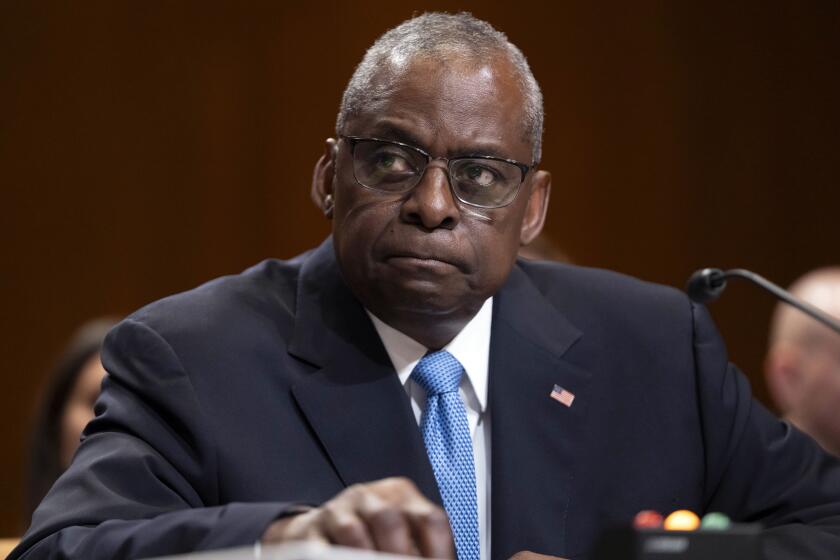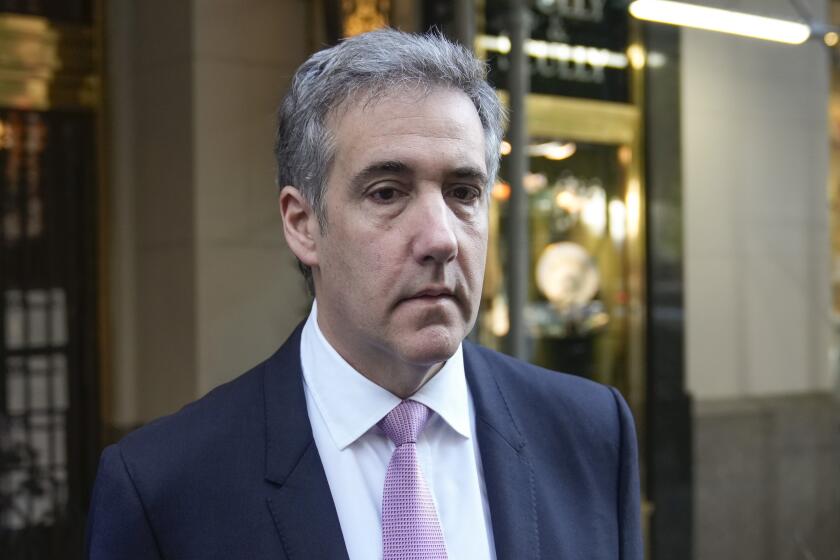U.S. to Continue Attack on Prop. 209
The Clinton administration has decided to press its challenge of California’s Proposition 209, the sweeping ban on affirmative action that was deemed constitutional this week by a federal appeals court panel, White House officials said Thursday.
“The president made it clear that we are going to continue to stand by our position,” said Rahm Emanuel, senior advisor to the president.
The decision, the result of White House discussions in the wake of Tuesday’s ruling by a three-judge panel of the U.S. 9th Circuit Court of Appeals, means that the Justice Department will continue to participate in the legal challenge to Proposition 209 as a “friend of the court.” The view was summed up in a two-page memo written by Charles Ruff, chief White House counsel, and delivered to the president.
“The administration feels that this is an important case,” said one White House official. “There are obviously very important constitutional issues that are being considered in this case.”
The decision caused little dissent within the White House, which previously had submitted a legal argument on behalf of Proposition 209’s opponents. “This wasn’t the subject of much debate,” the official said.
As a friend of the court, or amicus curiae, the Justice Department may file a legal brief outlining why it views the affirmative action ban as unconstitutional in future legal proceedings. But key decisions in the case will continue to be made by others. For example, a group of Californians challenging the proposition have decided to ask the 9th Circuit for en banc review, in which a majority of the 19 eligible judges in the circuit would reexamine Tuesday’s ruling.
Beyond the legal considerations, Proposition 209 has been fraught with political significance for the White House, which has vowed to “mend” rather than destroy affirmative action. Indeed, affirmative action is among the more sensitive issues for the administration as it seeks to promote racial healing as a major theme of Clinton’s second term.
The proposition banning gender and racial preferences in government passed with 55% of the vote, and California Gov. Pete Wilson has been a vocal supporter.
“In light of the 9th Circuit’s decision, it is truly regrettable that the Clinton administration continues to take a position that no other administration has--contending that a law prohibiting all race- and gender-based discrimination is unconstitutional,” said Lisa Kalustian, a spokeswoman for the governor.
During the presidential campaign, Clinton sought to keep some distance between himself and the challengers to Proposition 209, declaring his opposition to quotas even as he remained opposed to the ballot measure.
“As you know, my position on affirmative action is that a lot of the things we had been doing should be changed,” Clinton said after the court ruled this week. “But my formulation of ‘mend it, don’t end it,’ I still think, is the best thing for America.”
If states are prohibited from taking “appropriate steps” to help the disadvantaged, Clinton added, “we’ll all have to regroup and find new ways to achieve the same objective.”
Informed of the administration’s decision to continue supporting the legal challenge, a key opponent of Proposition 209 contended that it showed “the extreme national importance” of the issue.
The White House decision reflects the view that Tuesday’s court ruling “cannot be squared with existing Supreme Court law and fundamental constitutional protections for minorities and women,” said Mark Rosenbaum, legal director of the American Civil Liberties Union of Southern California.
But advocates of Proposition 209 remained ebullient at this week’s ruling. One leader of the pro-Proposition 209 camp, Ward Connerly, described the court’s decision as “a dagger in the coffin of preferences.”
Earlier Thursday, a Justice Department official expressed disappointment with Tuesday’s ruling.
“As a matter of law, the Justice Department is disappointed with the contrary ruling of the three-judge court,” acting Deputy Atty. Gen. Seth Waxman told a news conference.
Although he said he had not read the full opinion, Waxman added: “It is extraordinarily unlikely that the reasoning of the three-judge court would convince the United States that its understanding of the Constitution and the Supreme Court’s reading of the Constitution is wrong.”
More to Read
Get the L.A. Times Politics newsletter
Deeply reported insights into legislation, politics and policy from Sacramento, Washington and beyond. In your inbox three times per week.
You may occasionally receive promotional content from the Los Angeles Times.





